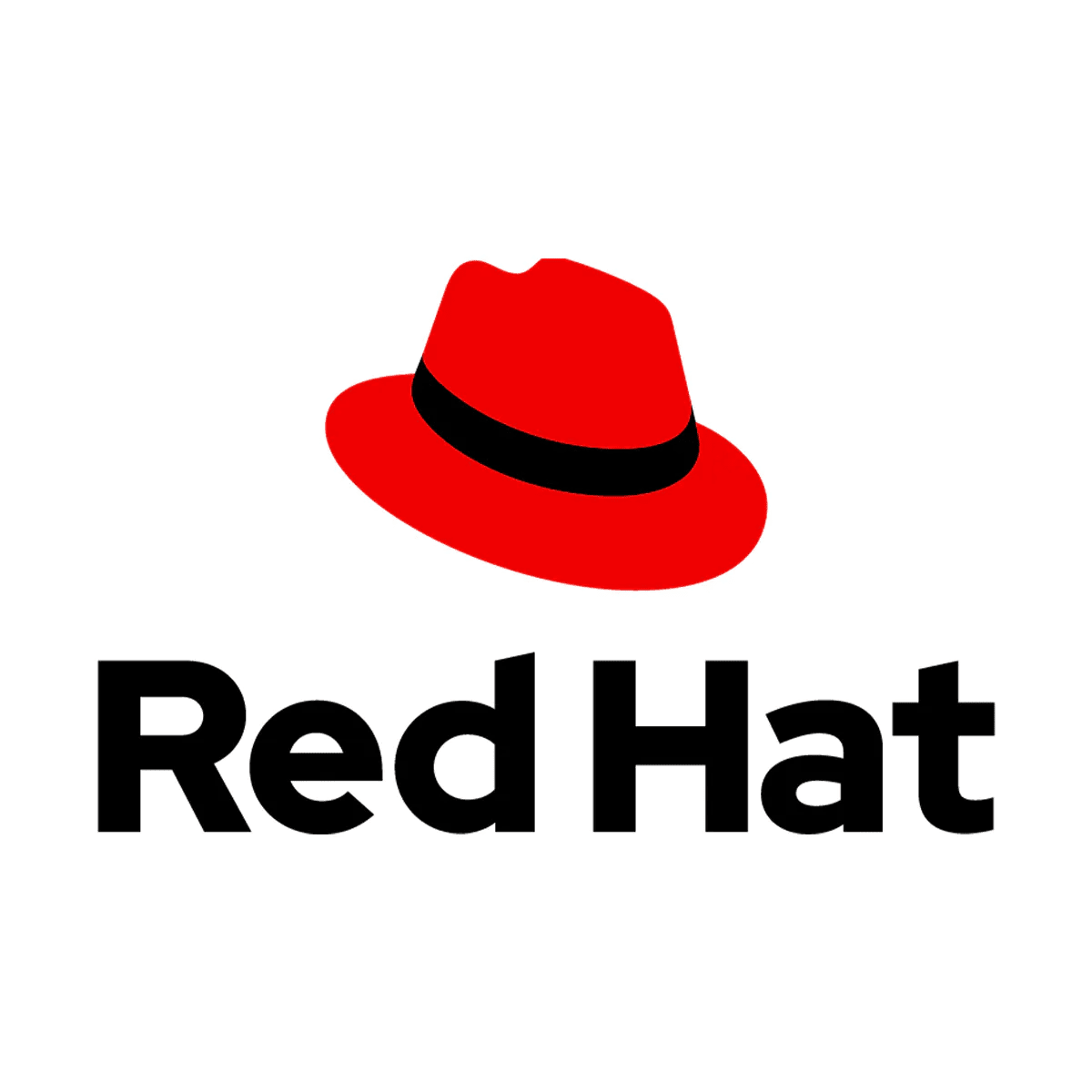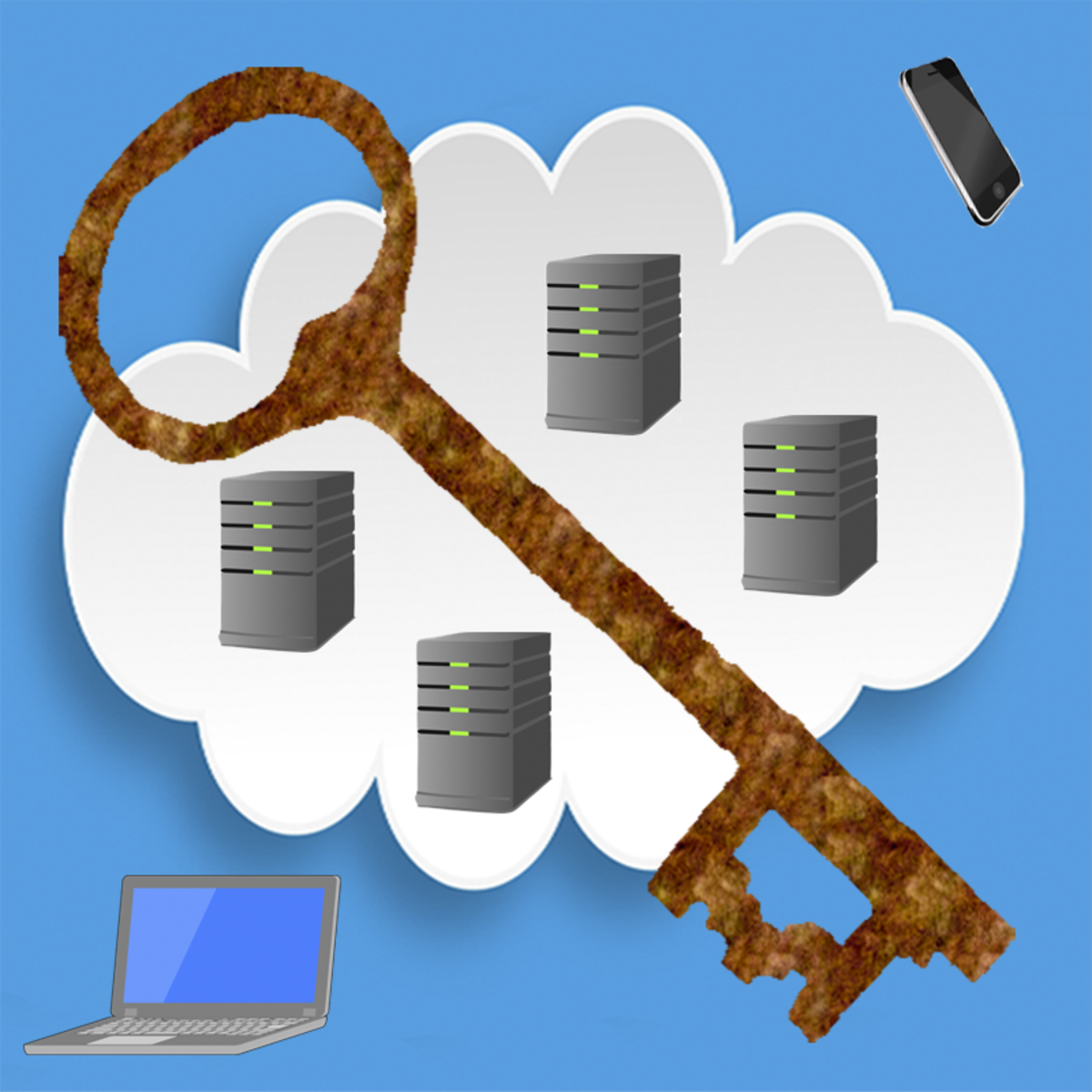Cloud Application Developer
Cloud Application Developer: A Comprehensive Career Guide
Cloud Application Developers are the architects and builders of software designed specifically to run in cloud computing environments. Unlike traditional applications hosted on local servers, cloud applications leverage the scalability, flexibility, and global reach offered by platforms like Amazon Web Services (AWS), Microsoft Azure, and Google Cloud Platform (GCP). These developers create, deploy, manage, and optimize applications that power much of the modern digital world.
Working as a Cloud Application Developer can be highly engaging. You'll often be at the forefront of technological innovation, working with cutting-edge tools and services. The role involves solving complex problems related to scalability, reliability, and performance in distributed systems. Furthermore, the ability to build applications that can serve millions of users globally offers a unique sense of impact and accomplishment.
What is Cloud Application Development?
Defining the Cloud-Native Approach
Cloud application development focuses on building software that takes full advantage of cloud computing models. This means designing applications not just to run *on* the cloud, but to be *of* the cloud. These "cloud-native" applications are often built using microservices architecture, where the application is broken down into smaller, independent services that communicate over a network.
This approach differs significantly from traditional software development. Legacy applications were typically monolithic, meaning all components were tightly coupled and deployed as a single unit. Migrating these to the cloud often involves a "lift-and-shift" approach initially, but true cloud application development rebuilds or refactors applications to harness cloud features like auto-scaling, managed services, and pay-as-you-go pricing.
The core idea is to build resilient, manageable, and observable systems. Cloud-native applications are designed to handle failure gracefully, scale effortlessly based on demand, and provide deep insights into their operational status. This paradigm shift is fundamental to modern software engineering.
Traditional vs. Cloud-Native Applications
Traditional applications are often designed assuming stable infrastructure and predictable loads. They might rely on specific hardware or operating systems and require manual intervention for scaling or updates. Deployment cycles can be long and infrequent.
Cloud-native applications, conversely, embrace the dynamic nature of the cloud. They expect infrastructure failures and are designed to recover automatically. Scaling is often automated, responding dynamically to user traffic. Deployments can happen multiple times a day using Continuous Integration and Continuous Deployment (CI/CD) pipelines.
Key differentiators include architecture (monolithic vs. microservices), deployment (manual vs. automated), infrastructure (fixed vs. elastic), and development lifecycle (waterfall vs. agile/DevOps). Understanding these differences is crucial for developers transitioning to the cloud.
To grasp the foundational concepts of cloud computing and how applications are architected for it, these resources offer valuable insights.
Importance in the Modern Tech Ecosystem
Cloud computing has become the backbone of the digital economy. Businesses across industries rely on cloud applications for everything from customer relationship management (CRM) and enterprise resource planning (ERP) to streaming services and mobile apps. Cloud Application Developers are essential for building and maintaining these critical systems.
The ability to rapidly develop, deploy, and scale applications gives companies a significant competitive advantage. Cloud platforms enable innovation by providing easy access to advanced technologies like artificial intelligence (AI), machine learning (ML), big data analytics, and the Internet of Things (IoT). Developers skilled in leveraging these services are in high demand.
According to industry reports, cloud adoption continues to grow rapidly. A report from Gartner forecasts significant growth in public cloud spending, indicating the ongoing importance and expansion of cloud technologies across various sectors. This trend underscores the stability and growth potential of careers in cloud development.
Examples of Cloud Applications
Cloud applications are ubiquitous. Software-as-a-Service (SaaS) platforms like Salesforce, Google Workspace, and Microsoft 365 are prime examples. These applications are accessed via the internet and managed entirely by the provider.
Streaming services like Netflix and Spotify rely heavily on cloud infrastructure to deliver content globally and scale dynamically based on viewership. E-commerce platforms like Amazon use the cloud for everything from their website and product recommendations to logistics and payment processing.
Serverless computing tools, such as AWS Lambda, Azure Functions, and Google Cloud Functions, represent another facet of cloud applications. Developers write code for specific functions without managing the underlying servers, allowing for highly efficient and cost-effective solutions for specific tasks.
These courses provide practical examples and hands-on experience in building different types of cloud applications.
Role of a Cloud Application Developer
Core Responsibilities
A Cloud Application Developer's primary role involves designing, developing, deploying, and managing applications built for cloud environments. This includes writing clean, efficient code, selecting appropriate cloud services, and ensuring the application is scalable, reliable, and secure.
Developers are often responsible for setting up deployment pipelines (CI/CD) to automate testing and release processes. They monitor application performance and costs, optimizing resource utilization to ensure efficiency. Troubleshooting issues in a distributed cloud environment is also a key part of the job.
They must stay updated on the latest cloud platform features and best practices, constantly evaluating new tools and services that could benefit their applications. This continuous learning is essential in the rapidly evolving cloud landscape.
Collaboration Across Teams
Cloud Application Developers rarely work in isolation. They collaborate closely with various teams, including DevOps engineers, site reliability engineers (SREs), security specialists, data engineers, and product managers. Effective communication and teamwork are crucial.
Collaboration with DevOps/SRE teams focuses on infrastructure automation, monitoring, and ensuring smooth deployments. Working with security teams ensures that applications meet compliance requirements and are protected against threats. Interaction with data teams might involve integrating data pipelines or building applications that leverage data analytics.
Understanding the goals and constraints of these different roles helps developers build better, more integrated solutions. Agile methodologies are common, requiring developers to participate actively in planning, stand-ups, and retrospectives.
Common Industries Employing Cloud Developers
Demand for Cloud Application Developers spans nearly every industry. Technology companies, from startups to large enterprises like Google, Amazon, and Microsoft, are major employers. Financial services firms leverage the cloud for trading platforms, risk analysis, and customer-facing applications.
Healthcare organizations use the cloud for electronic health records (EHR), telemedicine platforms, and medical research. Retail and e-commerce companies rely on cloud applications for online stores, supply chain management, and customer analytics. The entertainment industry uses the cloud for content creation, distribution, and streaming.
Even traditionally less tech-focused sectors like manufacturing, logistics, and education are increasingly adopting cloud solutions, creating broad opportunities for skilled developers. You can explore various cloud-related roles across industries on platforms like OpenCourser's Cloud Computing section.
This course offers insights into how cloud technologies are applied in modern business contexts.
Hybrid vs. Fully Remote Work Environments
The nature of cloud development lends itself well to remote work, as the primary tools and infrastructure are accessible online. Many tech companies offer fully remote positions for Cloud Application Developers, providing flexibility in location.
Hybrid models, combining remote work with some days in the office, are also common. These aim to balance flexibility with the benefits of in-person collaboration. The specific arrangement often depends on the company culture and team needs.
Candidates exploring cloud development roles should consider their preferred work style. Both remote and hybrid options are widely available, making this a potentially attractive field for those seeking flexibility. Job descriptions typically specify the work model.
Technical Skills and Tools
Essential Programming Languages
Proficiency in one or more programming languages is fundamental. Python is widely used for its simplicity, extensive libraries, and strong support in cloud SDKs and data science tasks. Java remains a cornerstone for enterprise applications, known for its robustness and large ecosystem.
Go (Golang) has gained significant popularity in cloud-native development due to its performance, concurrency features, and efficiency, making it ideal for building microservices and infrastructure tooling. JavaScript (particularly Node.js) is essential for full-stack development involving web front-ends and serverless back-ends.
Other languages like C#, Ruby, and PHP are also used depending on the specific company, platform, or application requirements. Familiarity with scripting languages like Bash can also be beneficial for automation tasks.
These courses cover popular languages used in cloud development.
Major Cloud Platforms (AWS, Azure, GCP)
Deep familiarity with at least one major cloud provider is essential. Amazon Web Services (AWS) is the market leader, offering a vast array of services. Microsoft Azure is a strong competitor, particularly popular among enterprises already using Microsoft products. Google Cloud Platform (GCP) is known for its strengths in data analytics, machine learning, and Kubernetes.
Understanding the core services of a chosen platform – compute (like EC2, Azure VMs, Compute Engine), storage (S3, Blob Storage, Cloud Storage), databases (RDS, SQL Database, Cloud SQL), and networking (VPC, VNet, VPC Network) – is critical. Developers need to know how to provision, configure, and manage these resources effectively.
While specializing in one platform is common, having a conceptual understanding of others can be advantageous, as multi-cloud strategies become more prevalent. Certifications from these providers (like AWS Certified Developer, Azure Developer Associate, Google Cloud Certified Professional Cloud Architect) are highly valued.
These courses focus on specific cloud platforms.
Containerization and Orchestration (Docker, Kubernetes)
Docker has revolutionized how applications are packaged and deployed. Understanding how to create Docker images and run containers is a fundamental skill for cloud developers. Containers ensure consistency across different environments (development, testing, production).
Kubernetes (K8s) has become the de facto standard for orchestrating containers at scale. It automates the deployment, scaling, and management of containerized applications. Cloud Application Developers often need to define Kubernetes deployment configurations (YAML files) and interact with Kubernetes clusters.
Cloud providers offer managed Kubernetes services (AWS EKS, Azure AKS, Google GKE) that simplify cluster management, but understanding core Kubernetes concepts remains crucial. Familiarity with related tools in the ecosystem, like Helm for package management, is also beneficial.
These resources cover containerization and orchestration technologies.
CI/CD and Infrastructure-as-Code
Continuous Integration and Continuous Deployment (CI/CD) practices are central to modern cloud development. Developers need familiarity with CI/CD tools like Jenkins, GitLab CI, GitHub Actions, or platform-specific services (AWS CodePipeline, Azure DevOps).
Infrastructure-as-Code (IaC) involves managing and provisioning infrastructure through code, rather than manual processes. Tools like Terraform (cloud-agnostic) and AWS CloudFormation, Azure Resource Manager (ARM) templates, or Google Cloud Deployment Manager (platform-specific) are key.
Understanding IaC allows developers to version control their infrastructure, automate environment setup, and ensure consistency. This bridges the gap between development and operations, aligning with DevOps principles.
These courses delve into CI/CD and IaC practices.
Formal Education Pathways
Relevant Undergraduate Degrees
A bachelor's degree in Computer Science is the most common educational background for Cloud Application Developers. These programs provide a strong theoretical foundation in algorithms, data structures, operating systems, networking, and software engineering principles – all relevant to cloud development.
Degrees in Software Engineering, Computer Engineering, or Information Technology are also highly relevant. Some universities may offer specialized tracks or courses in cloud computing, distributed systems, or cybersecurity within these broader programs.
While a degree provides a solid base, practical skills and experience with specific cloud technologies are equally important. Students should supplement their coursework with personal projects, internships, and online learning.
Graduate Programs and Specializations
For those seeking deeper expertise, a Master's degree or Ph.D. in Computer Science or a related field can be beneficial. Graduate programs often allow for specialization in areas directly applicable to cloud computing, such as distributed systems, parallel computing, network security, or large-scale data management.
Research at the graduate level might focus on optimizing cloud resource allocation, developing novel cloud architectures, enhancing cloud security protocols, or exploring the intersection of cloud computing with AI/ML. These advanced degrees are particularly valuable for roles in research, architecture, or specialized development areas.
Some universities offer specific Master's programs focused entirely on Cloud Computing, providing intensive training in platform services, architecture, and development best practices.
Certifications vs. Degrees: Industry Perceptions
In the tech industry, particularly for roles like Cloud Application Developer, practical skills and certifications often carry significant weight, sometimes equal to or even greater than a traditional degree, especially for experienced professionals or those pivoting careers.
Cloud provider certifications (e.g., AWS Certified Developer - Associate, Microsoft Certified: Azure Developer Associate, Google Cloud Certified - Professional Cloud Developer) directly validate hands-on skills with specific platforms. Employers highly value these as proof of practical competency.
While a degree provides foundational knowledge, certifications demonstrate up-to-date expertise in rapidly evolving cloud technologies. For many roles, a combination of a relevant degree (or equivalent experience) and targeted certifications presents the strongest profile. Bootcamps focused on cloud skills can also be a viable pathway, particularly when paired with portfolio projects.
Self-Directed and Online Learning
Structuring a Self-Taught Cloud Curriculum
For those pursuing cloud development without a traditional degree, or supplementing their education, a structured self-learning path is essential. Start with foundational concepts: programming (Python or Go are good starting points), networking basics, operating systems (especially Linux), and databases (SQL and NoSQL).
Next, dive into core cloud concepts: virtualization, containers (Docker), and orchestration (Kubernetes). Choose one major cloud platform (AWS, Azure, or GCP) and focus on its core services (compute, storage, database, networking). Online courses, provider documentation, and hands-on labs are invaluable resources.
Progress to more advanced topics like serverless computing, microservices architecture, Infrastructure-as-Code (Terraform), CI/CD pipelines, and monitoring/logging. Aim to earn relevant certifications along the way to validate your skills. OpenCourser offers a vast catalog to browse courses across these topics.
These courses offer foundational knowledge for cloud and DevOps practices.
Building Portfolio Projects
Theoretical knowledge alone isn't enough; practical application is key. Building portfolio projects demonstrates your ability to apply cloud skills to solve real-world problems. Start with small projects and gradually increase complexity.
Ideas include building a RESTful API using serverless functions, deploying a containerized web application on Kubernetes, creating a data processing pipeline using cloud storage and compute services, or setting up a CI/CD pipeline for an existing application. Document your projects thoroughly on platforms like GitHub.
Focus on projects that showcase skills relevant to job descriptions you're interested in. For example, if targeting roles involving microservices, build a small application composed of several communicating services deployed in containers.
These courses provide hands-on project experience.
Leveraging Open-Source Communities
Engaging with the open-source community is a fantastic way to learn, network, and build credibility. Many cloud-native tools (Kubernetes, Docker, Terraform, Prometheus) are open source. Contributing to these projects, even with documentation updates or minor bug fixes, demonstrates initiative and technical skill.
Participate in online forums, mailing lists, or Slack/Discord channels related to cloud technologies. Answering questions, sharing knowledge, and learning from experienced practitioners can accelerate your learning curve significantly.
Contributing to or using open-source projects in your portfolio can also make your profile stand out to potential employers who value collaboration and community involvement.
Transitioning from Traditional Software Roles
Professionals working in traditional software development, system administration, or network engineering roles possess many transferable skills valuable for cloud development. Understanding programming logic, system architecture, or network protocols provides a strong foundation.
The key is to bridge the gap by learning cloud-specific concepts and tools. Focus on a major cloud platform, containerization (Docker/Kubernetes), IaC (Terraform), and CI/CD practices. Online courses and certifications are particularly effective for targeted upskilling.
Highlight transferable skills on your resume and build cloud-focused portfolio projects. Networking with cloud professionals and seeking mentorship can provide guidance and open doors. It's a challenging but achievable transition, often leading to exciting career growth.
This course is designed for those transitioning into cloud-native development.
Career Progression for Cloud Application Developers
Entry-Level to Senior Roles
Career progression often starts with roles like Junior Cloud Developer, Cloud Engineer, or Associate Cloud Application Developer. These positions typically involve coding, deploying applications under guidance, managing basic cloud resources, and troubleshooting issues.
With experience, developers move into mid-level roles (Cloud Application Developer, Cloud Engineer II) with more responsibility for design, implementation, and optimization. Senior roles (Senior Cloud Application Developer, Lead Cloud Engineer) involve complex architectural decisions, mentoring junior developers, leading projects, and potentially specializing.
Further progression can lead to roles like Cloud Architect, Principal Engineer, or technical leadership positions, focusing on high-level strategy, design, and innovation across multiple teams or projects.
Specializations within Cloud Development
As developers gain experience, they may choose to specialize in specific areas within cloud application development. Cloud Security is a critical specialization, focusing on securing applications and infrastructure in the cloud.
Other specializations include Cloud Networking, Cloud Data Engineering (designing and managing data pipelines and storage in the cloud), Cloud AI/ML (integrating machine learning services into applications), or focusing deeply on a specific platform's advanced services (e.g., AWS serverless expert, Azure IoT specialist).
Specializing can lead to higher demand and potentially higher compensation, as deep expertise in niche areas is highly valued. Choosing a specialization often aligns with personal interests and the evolving needs of the market.
These courses touch upon security and specific application areas within the cloud.
Management vs. Technical Tracks
Cloud Application Developers typically have two main career progression tracks: technical and management. The technical track involves deepening expertise, becoming a Principal Engineer or Architect, solving the most complex technical challenges, and setting technical direction.
The management track involves moving into roles like Engineering Manager, Team Lead, or Director of Engineering. This path focuses on leading teams, managing projects, setting strategy, and developing people rather than hands-on coding.
Both paths offer rewarding career opportunities. The choice depends on individual strengths, interests, and career goals. Some companies offer hybrid roles or flexibility to move between tracks.
Global Salary Benchmarks
Salaries for Cloud Application Developers vary based on location, experience, company size, industry, and specific skill set. Generally, cloud roles command competitive salaries due to high demand for these skills. Major tech hubs and metropolitan areas often offer higher compensation but also have a higher cost of living.
Entry-level positions typically offer solid starting salaries, with significant increases possible as developers gain experience and certifications. Senior developers and specialists, particularly in areas like security or AI/ML, can command premium salaries. Resources like Robert Half's Salary Guide or data from sites like Glassdoor and Levels.fyi can provide more specific benchmarks based on location and role.
Cloud certifications often correlate with higher earning potential. Continuous learning and skill development are key to maximizing career growth and compensation in this field.
Industry Trends and Market Demand
Adoption Rates Across Sectors
Cloud adoption is no longer limited to the tech industry; it's pervasive across nearly all sectors. Financial services heavily utilize the cloud for scalability, security, and regulatory compliance. Healthcare leverages the cloud for data management, telehealth, and research collaboration.
Retail and e-commerce rely on the cloud for scalable online platforms, personalized customer experiences, and supply chain optimization. Manufacturing is adopting cloud for IoT integration, predictive maintenance, and smart factory initiatives. Even public sector and education institutions are migrating services to the cloud for efficiency and accessibility.
This widespread adoption fuels consistent demand for Cloud Application Developers across diverse industries, offering a wide range of employment opportunities. You can explore industry-specific cloud applications through targeted searches on OpenCourser.
Impact of AI-Driven Cloud Services
Artificial Intelligence (AI) and Machine Learning (ML) are increasingly integrated into cloud platforms. Services like AWS SageMaker, Azure Machine Learning, and Google AI Platform make it easier for developers to incorporate AI/ML capabilities into their applications without deep expertise in algorithms.
This trend requires Cloud Application Developers to understand how to consume these AI services, manage data for ML models, and deploy AI-powered features responsibly. While dedicated AI/ML engineers focus on model building, cloud developers often handle the integration and operational aspects.
The rise of Generative AI further accelerates this, with cloud platforms offering APIs and tools to build applications leveraging large language models (LLMs). Familiarity with these evolving AI services is becoming an increasingly valuable skill for cloud developers.
Sustainability Concerns in Data Centers
As cloud usage grows, so does the energy consumption of the massive data centers that power it. Sustainability is becoming a significant concern and focus area for cloud providers and their customers. Providers are investing heavily in renewable energy sources, efficient cooling technologies, and hardware optimization.
Cloud Application Developers can play a role by designing efficient applications that minimize resource consumption. This includes optimizing code, choosing appropriate instance sizes (right-sizing), utilizing serverless architectures where appropriate, and designing data storage strategies that reduce unnecessary data movement.
"Green coding" practices and awareness of the environmental impact of cloud resource usage are emerging considerations within the field. Some organizations are actively seeking developers with an understanding of sustainable software engineering principles.
Geographic Demand Hotspots
While demand for Cloud Application Developers is global, certain regions exhibit particularly high concentrations of opportunities. North America, especially major tech hubs in the United States (Silicon Valley, Seattle, Austin, New York) and Canada (Toronto, Vancouver), remains a primary hotspot.
Europe also shows strong demand, particularly in cities like London, Berlin, Dublin, Amsterdam, and Paris, driven by tech growth and digital transformation initiatives. The Asia-Pacific (APAC) region, including Singapore, Sydney, Bangalore, and Tokyo, is experiencing rapid cloud adoption and offers numerous opportunities.
The rise of remote work has somewhat decentralized opportunities, allowing developers to work for companies based in these hotspots from other locations. However, understanding regional market dynamics can be helpful for career planning.
Ethical and Security Challenges
Data Privacy Regulations (GDPR, CCPA)
Cloud applications often handle sensitive user data, making compliance with data privacy regulations like the EU's General Data Protection Regulation (GDPR) and the California Consumer Privacy Act (CCPA) critical. Developers must design applications with privacy in mind ("privacy by design").
This includes implementing mechanisms for user consent, ensuring data minimization (collecting only necessary data), providing users control over their data (access, deletion requests), and securing data storage and transmission according to regulatory standards.
Failure to comply can result in significant fines and reputational damage. Cloud Application Developers need a working knowledge of relevant regulations in the regions where their application operates and how to implement technical controls to meet these requirements.
Vulnerabilities in Multi-Tenant Architectures
Public cloud environments are typically multi-tenant, meaning multiple customers share the same underlying infrastructure. While providers implement strong isolation mechanisms, potential vulnerabilities can exist if applications are not designed securely.
Developers must ensure proper authentication, authorization, and input validation to prevent one user or tenant from accessing another's data or resources. Misconfigurations in cloud services (e.g., public S3 buckets) are common sources of security incidents.
Understanding cloud security best practices, secure coding principles, and common attack vectors (like injection attacks, broken authentication) specific to cloud environments is essential for mitigating risks in multi-tenant architectures.
These resources delve into cloud architecture and potential security considerations.
Ethical AI Deployment in Cloud Apps
As AI becomes more integrated into cloud applications, ethical considerations become paramount. Developers must be aware of potential biases in AI models and data, ensuring fairness and avoiding discriminatory outcomes. Transparency in how AI makes decisions is also important.
Considerations include ensuring data privacy during model training and inference, providing explanations for AI-driven recommendations or decisions where appropriate, and implementing safeguards against misuse of AI capabilities.
The ethical deployment of AI is an evolving field, requiring ongoing attention and adherence to responsible AI principles promoted by cloud providers and industry bodies.
Disaster Recovery and Business Continuity
While cloud platforms offer high availability, failures can still occur (region outages, service disruptions). Cloud Application Developers play a role in designing applications for resilience and implementing disaster recovery (DR) strategies.
This involves architecting applications across multiple availability zones or regions, regularly backing up data, and defining recovery time objectives (RTO) and recovery point objectives (RPO). Testing DR plans regularly ensures they are effective.
Understanding platform-specific services for backup, failover, and resilience (e.g., AWS Backup, Azure Site Recovery) and designing applications to leverage them is a crucial responsibility for ensuring business continuity.
Frequently Asked Questions
Is cloud development replacing on-premise roles?
While cloud adoption is widespread, it's not entirely replacing on-premise roles. Many organizations operate in hybrid environments, maintaining some infrastructure on-premises alongside cloud resources. Roles managing traditional infrastructure are evolving but still exist, often incorporating cloud integration skills.
However, the trend is clearly towards the cloud. Skills related to managing physical servers are becoming less in demand compared to cloud platform expertise. Professionals in traditional IT roles are often encouraged to upskill in cloud technologies to remain competitive.
The future likely involves a mix, but proficiency in cloud development and operations offers broader opportunities and aligns with dominant industry trends.
Can bootcamp graduates compete with CS degree holders?
Yes, bootcamp graduates can successfully compete for Cloud Application Developer roles, especially entry-level positions. Bootcamps offer intensive, practical training focused on in-demand skills and tools, often resulting in graduates with strong hands-on abilities.
While a Computer Science degree provides deeper theoretical foundations, employers increasingly value demonstrated skills, portfolio projects, and relevant certifications. Bootcamp grads who build strong portfolios and potentially earn cloud certifications can be very competitive applicants.
Success often depends on the quality of the bootcamp, the individual's dedication, and their ability to showcase their practical skills effectively during the interview process. Networking and continuous learning after the bootcamp are also important.
How volatile is cloud career demand during recessions?
Technology roles, including cloud development, are not entirely immune to economic downturns. Hiring freezes or layoffs can occur during recessions. However, cloud skills remain highly strategic for businesses seeking efficiency and scalability, potentially making these roles relatively more resilient compared to others.
Companies may rely even more on cloud solutions to reduce capital expenditure on physical infrastructure during tough economic times. Digital transformation projects often continue, driving demand for cloud expertise. While no role is completely recession-proof, cloud development is generally considered a field with strong long-term prospects.
Data from organizations like the U.S. Bureau of Labor Statistics consistently shows projected growth in software development and related IT fields, suggesting underlying stability.
What are typical interview processes for cloud roles?
Interviews for Cloud Application Developer roles typically involve multiple stages. Initial screening calls often assess basic qualifications and cultural fit. Technical phone screens might involve coding challenges (algorithms, data structures) or questions about cloud concepts.
On-site or virtual "loop" interviews usually follow, consisting of several rounds. These often include:
- Coding interviews (problem-solving on a whiteboard or shared editor).
- System design interviews (architecting a scalable cloud application).
- Behavioral interviews (assessing teamwork, problem-solving approach, experience).
- Cloud platform-specific interviews (testing knowledge of AWS, Azure, or GCP services).
Preparation involves practicing coding problems (e.g., on LeetCode), studying system design principles, reviewing cloud platform fundamentals, and preparing examples for behavioral questions using the STAR method (Situation, Task, Action, Result).
What are essential soft skills for team collaboration?
Technical skills are crucial, but soft skills are equally important for success as a Cloud Application Developer. Strong communication is vital for explaining technical concepts clearly to both technical and non-technical colleagues, documenting work, and collaborating effectively.
Teamwork and collaboration are essential, as development often occurs in agile teams involving multiple roles. Problem-solving skills, including the ability to analyze complex issues in distributed systems and work systematically towards solutions, are highly valued.
Adaptability and a willingness to learn are critical in the fast-paced cloud environment. Being receptive to feedback, managing time effectively, and demonstrating curiosity also contribute significantly to success within a team.
How can I future-proof my career against AI automation threats?
While AI can automate certain coding tasks, it's unlikely to fully replace the creative problem-solving, architectural design, and collaborative aspects of cloud development in the near future. Future-proofing involves focusing on higher-level skills that AI struggles with.
Develop deep expertise in cloud architecture, system design, and specialized areas like security or AI/ML integration. Focus on understanding business requirements and translating them into effective technical solutions. Hone communication, collaboration, and leadership skills.
Embrace AI as a tool to enhance productivity rather than viewing it solely as a threat. Learn how to leverage AI-powered coding assistants and cloud services effectively. Continuous learning and adapting to new technologies, including AI itself, remain the best strategies for long-term career resilience.
Embarking on a career as a Cloud Application Developer requires dedication to continuous learning and skill development. The field offers exciting challenges, opportunities for innovation, and the chance to build the applications that power our increasingly digital world. With the right preparation and mindset, it can be a highly rewarding path.























